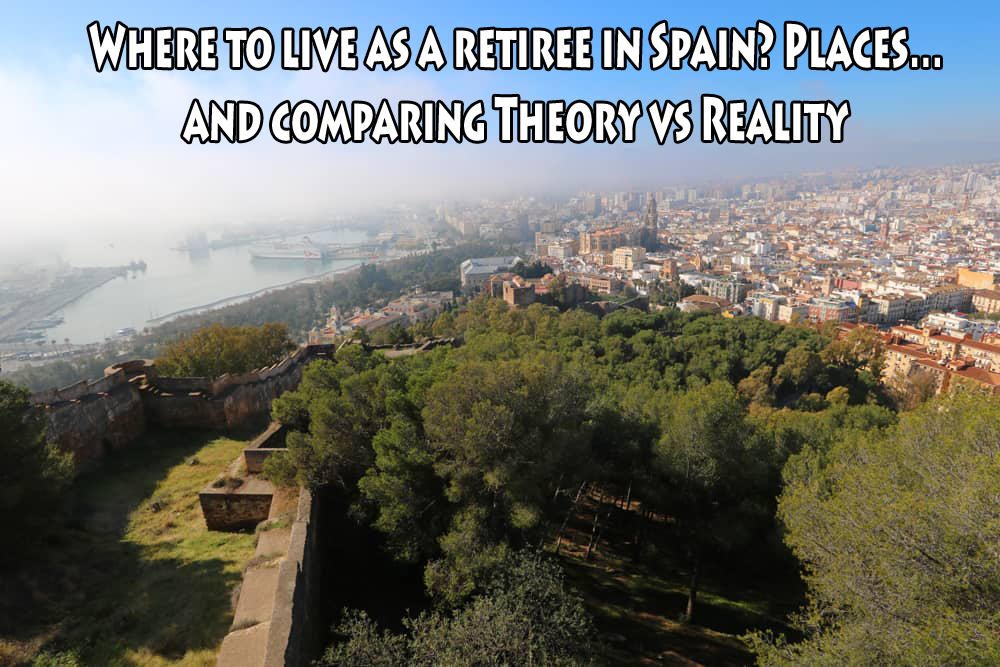Updated August 2023
I’ve updated this post because I’m bored by the people always making an issue of “Expat VS immigrant”. It’s ridiculous and as exciting to me as arguing over how to pronounce “potato”.
You may identify as an “immigrant”. I might identify as an “Expat”. It depends on your personal circumstances and intentions.
As far as using “Expat” in the posts I write, that’s a catch-all usage of the word. It’s ironic that people who argue (“you mean immigrant!!”) are coming from pages called “Expats in Mexico” or “Expats in Spain” etc etc. You’re not going to name a page “Expats, Immigrants and foreigners in Mexico” and I’m not going to write a post called “The most popular places for Expats, Immigrants and (whatever you want to call yourself) in the World”.
I wish there was another word that encapsulated all the various categories under which people like to label themselves. But as far as I know there isn’t…at least not one that won’t enrage someone else over this mindless argument.
So don’t get upset if I use the word “Expat”. It’s not meant to be a slight.
I’m including the original post below (which dates back to 2021). Read it if you like. Disagree if you wish. But I’m not going to argue over it, the whole subject has become incredibly boring to me.
What is an Expat?
Wikipedia: an expatriate (often shortened to expat) is a person temporarily or permanently residing in a country other than that of the person’s upbringing.
The word “expat” has negative connotations for a few reasons, especially here in Spain where we live right now. The word “temporarily” in the above definition applies to many foreigners who have moved to make Spain home. I saw a recent informal survey on a facebook page here where only about 1/3rd of expats actually live in Nerja full-time (that’s probably typical of the numbers you’ll see along the coastal communities of Spain).
Secondly, the term expat for some implies “white privilege”. If you’re an expat many people associate it with retired white people living somewhere warm.
What is an Immigrant?
Cambridge dictionary: “a person who comes to live permanently in a foreign country”
So the difference in the definition of “immigrant” (vs the definition of “Expat”) seems to be the word “permanently”. There’s no “temporary” in the definition of an immigrant.
But the word “immigrant” comes with its own implications: it is usually associated with people moving from a poorer country to a richer country to settle down long term and make a better life for themselves and their families…and that sounds almost the opposite from what you think of when you hear the term expat.
So, what are we?
The debate is new to us, it’s not something we’ve ever dwelled on. But here are my thoughts as of right now (and they are subject to change…)
Firstly, as far as official definitions go, the only difference seems to be that an immigrant comes to live somewhere permanently vs an expat who might be temporarily or permanently moving someplace.
My question is: how do you make the above distinction? How do we know we’ll be here permanently? We just moved to Spain. Who know what the future holds? Plus the choice might not be entirely up to us – until we’ve been here the 5 years required for permanent residency we can’t be assured of permanently staying here.
Another thing: We’ve lived in different places in our lives: Canada, Croatia, now Spain. We obviously are Expats. As I say above, that could change with time. But in our case we’re definitely in the “Expat” camp right now.
Also: We could have permanent residency here. But what if our intention is to stay in Spain for a while and then switch out our Spanish Permanent Residency to EU Permanent Residency (where we can live in any EU country). Does that mean we are currently “Immigrants” despite not having the intention of being in Spain permanently?
My point: Whether you consider yourself an “Expat” or “Immigrant” depends as much on your legal status as it does on your intentions.
Also, just getting away from the official definitions: what is your definition of an immigrant?
I agree with the official definition of an immigrant (a person who comes to live permanently in a foreign country) but I also equate “immigrant” to people moving to different places to better their lives. Both Canada and the United States are countries borne of immigrants. Is it racist to state that immigrants are usually people who move from poorer countries to richer countries if this is a fact? Statistically ¾ of immigrants are from less-developed countries.
Since we are both retired – and moved to Spain from Canada – I just don’t feel like we fall under that definition of “an immigrant”. I think the more traditional term of “Expat” applies to us. Again, that’s my personal opinion outside of the official definitions I’ve presented up top..
In the end I consider the usage of the world immigrant or Expat personal to you. You may consider yourself an Immigrant, I may consider myself an Expat. Neither are wrong and it seems to me that people shouldn’t be fighting about these terms.
Ps. Lissette doesn’t subscribe to any of the above definitions. She was born and lived 20+ years in New York, moved to Montreal where she lived another 20+ years. Now she’s in Spain. She considers herself a “relocator”.
Related: Where to live as a retiree in Spain?


Leave a Reply